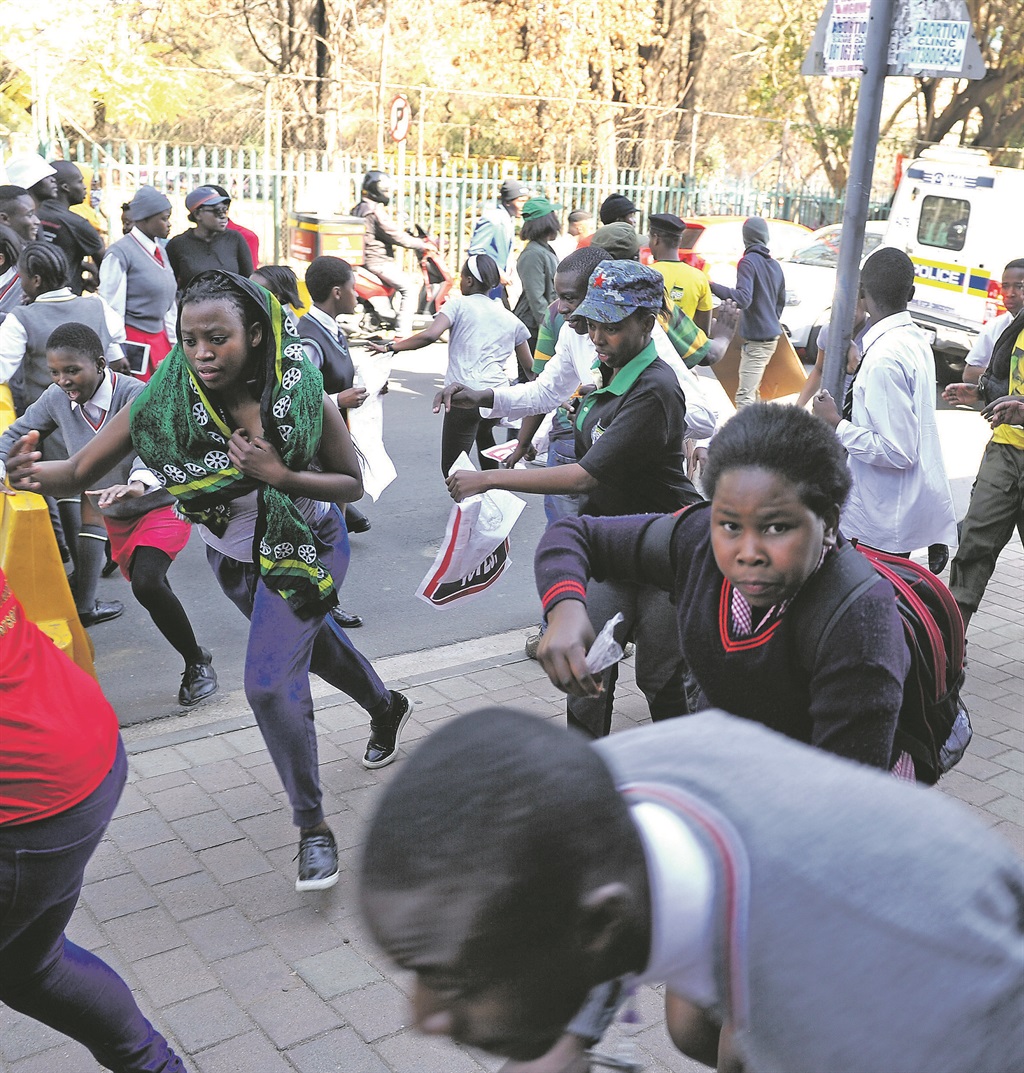
Our fearmongering National Treasury issued a warning last week about being unable to fund free education and qualified its announcement by stating that there was no budget for zero-fee education next year.
During its submission to the fees commission on August 12, it offered an absolutist economic argument with few options besides suggesting that taxes might have to be increased should the no-fee status quo remain.
Central to this message is the notion that funding free education will require a huge amount of money which, thus far, is unavailable in the national budget.
More importantly, Michael Sachs‚ Treasury’s deputy director-general, said that taking out loans to fund free education in 2017 would jeopardise the country’s fiscal sustainability.
In short, Treasury is calling the notion of maintaining zero-fee education a bad idea.
While it pledged its involvement in continuing fee discussions, Treasury’s commitment towards making innovative provisions for a no-fee education must be questioned.
Saliem Fakir, head of the policy and futures unit at WWF SA, said: “A sign of a government that cares about its citizens is reflected by the degree of effort it puts into thinking about the future rather than just the demands of the present.”
This in praise of government adopting an innovative policy regarding long-term fiscal planning back in 2012.
“Four key principles govern long-term fiscal planning,” asserted Fakir.
“First, solvency – when the government is able to meet its financial obligations. Second, growth – where there are enough savings and flexibility for the government to ensure sustained growth.
“Third, stability – where future obligations can be met with current tax burdens. And fourth, fairness – where current obligations are not met in a way that shifts costs to future generations.”
This is a ground-breaking way to manage fiscal sustainability in South Africa. Countries such as Australia, Denmark and New Zealand are putting this into practice.
But when it comes to tertiary education in this country, questions remain: Given its long-term approach, why is Treasury unable to support no-fee education?
Why has the office been so inefficient at finding suitable resources for education? Has Treasury truly considered the future of South Africa, especially its youth?
The evidence of benefits accruing from a population able to access higher education is indisputable, making long-term fiscal planning a given in this context. So, why not reprioritise the budget to expedite no-fee education?
Treasury’s stubborn stance against such a broad-based “socialist” project shows its affiliations.
Sachs has qualified his office’s forewarning of a no-fee policy being unsustainable with this statement:
“But of course we are prepared to respond to changes if they are there.”
His words ring hollow in the face of Treasury’s current economic argument, one based on a few stark statements which conjure up images of Greek austerity and scaremongering.
Treasury’s imperial warning reminds me of Bank of England governor Mark Carney’s admonishment to UK voters during the Brexit campaign. He predicted dire consequences if voters left the EU.
As it turns out, he failed to persuade them.
Had Treasury brought a few innovative options as part of its submission to the commission last Friday – together with its predictions of doom – its message might have been better received.
However, the good news is that Treasury seems open to discussion with stakeholders. Such talks need to include probing the deeper roots of sustainable economics to prevent the recurrence of this fee issue.
The economic argument is reasonable, yet it cannot be exclusionary as it only serves to alienate the student body and make Fallists even more determined to continue their struggle for free education.
My message to Treasury is: be open to debate. Be more accommodatory, more inclusive in your approach to education funding in South Africa.
Writer, human rights activist and political analyst Elinor Sisulu sums it up best when she says:
“Public education is so important, it has to be funded. It is a necessary engine to long-term economic growth and wellbeing ... The economic consequences of not investing in education are far greater than the simple mathematics of its finances.”
Kouakou is an Africa analyst and scenario strategist




 Publications
Publications
 Partners
Partners








